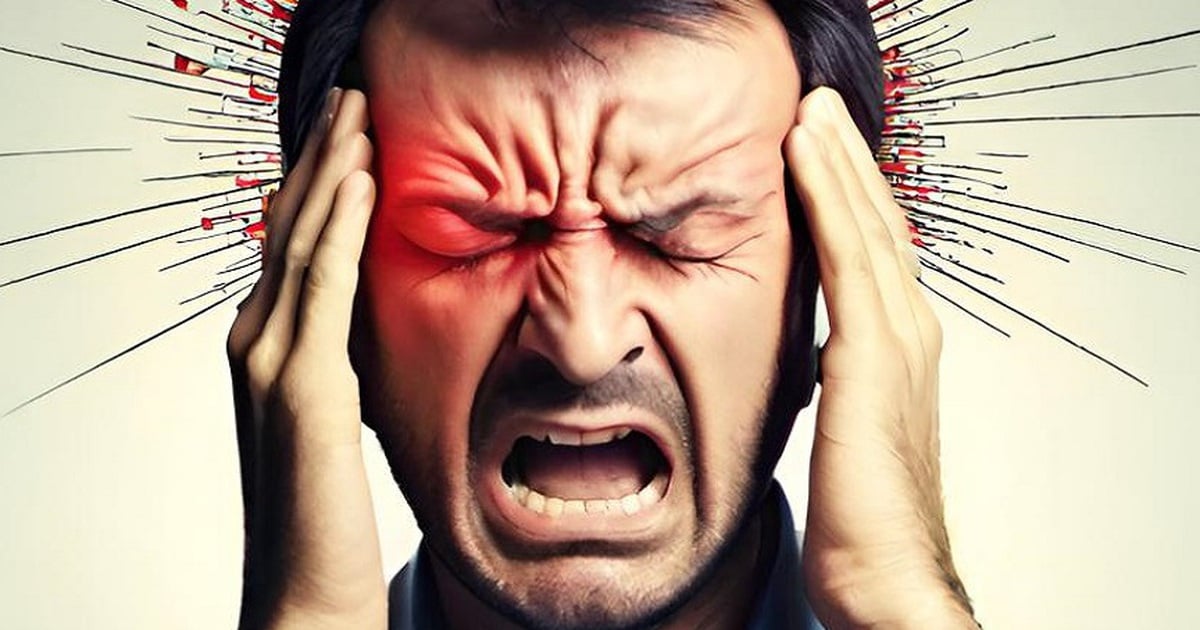Hanoi Many young people are under pressure to make money and get rich in the context of economic crisis, leading to prolonged stress, fatigue, and mental illness.
Duc, 30 years old, broke up with his girlfriend of 5 years to pursue his "personal career". For him, the idea that men must be rich became an invisible pressure. After graduating from university, Duc neglected his girlfriend, almost limited his friendships, and only maintained work relationships.
He was recruited as an accountant at a private company in Hanoi with a salary that was quite high compared to his friends. Duc gradually gained the trust and confidence of his superiors, and was soon promoted to deputy manager. With the ambition to get rich and being very knowledgeable about information technology and trading floors, Duc invested in stocks. At first, he invested money in the stock market and earned a small profit. Seeing that it was "good", he invested all his money, borrowed more from friends, into stocks. In the first one or two deals, Duc pocketed a decent amount. Unexpectedly, the stock exchange plummeted. Duc continued to borrow more to invest with the hope of recovering a little, but the money also evaporated quickly.
With a debt of two billion VND, the red book of his house in the countryside had to be mortgaged to the bank, Duc suffered from insomnia for a long time, turned to alcohol, gradually became withdrawn, had little communication, and occasionally talked nonsense. In early August, Duc was taken to Mai Huong Daytime Psychiatric Hospital for examination by his relatives. Doctor Tran Thi Hong Thu, Deputy Director of the Hospital, diagnosed him with depression.
Hoang also had psychological problems due to the pressure of getting rich. His wife, a bank employee, often came home at 9pm, crying and venting her anger on her husband and children because the company was forcing her to meet targets but she did not meet them. Hoang comforted her and advised her to quit her job if she was too tired, but received the reply: "Can you take care of your family and tell me to quit my job?"
The couple lives in an apartment in Cau Giay, spending nearly 50 million VND per month on living expenses, their children's tuition fees, and paying off bank loans. Whenever their children are sick and there is no money in the house, the couple runs around borrowing money. With the ambition to get rich, Hoang decided to quit his office job and open his own company. However, things were not easy. The job always needed capital to turn around the business, he had to borrow from here and pay off there. The economy was difficult, the company owed employees' salaries, Hoang tried every way but many times "hit a dead end".
Pressured from many sides, he lost sleep, talked nonsense, was irritable, and eventually drank to drown his sorrows. Over time, Hoang lost his appetite, became tired, had an erratic temperament, was afraid of sex, and had little contact with people. In early August, he went to a psychologist for treatment.

Depressed people often have inhibited emotions, thoughts, movements, have impulses, can commit suicide in a flash or harm loved ones. Photo: Health Affairs
Dr. Thu said that the hospital receives 100-200 patients a month, of which 50% are young people, about 20% are under economic pressure. Many patients are intellectuals, civil servants, young businessmen - high-pressure professions.
Dr. Huynh Thanh Hien, Ho Chi Minh City Mental Hospital, said that young people under 30 years old account for about 60% of the people coming here for examination, of which students and new workers make up the majority.
There are many reasons why young people suffer from mental disorders, from biological factors such as genetics, biochemical balance in the body, damage to the central nervous system; to work pressure and living environment. After the Covid-19 pandemic, the difficult economic situation along with the pressure to get rich makes this group of people susceptible to stress.
"The fluctuations in the stock market and virtual currency have caused many people who dreamed of getting rich to become penniless, lose money, and have a deadlocked life, leading to psychological disorders or depression," said Dr. Hien, adding that many young people have difficulty integrating into the community and lack the ability to cope with unexpected situations. When the pressure persists, the patient feels out of control, increases feelings of frustration, promotes unhealthy comparisons with others, and creates low self-esteem. These are favorable factors for the development of depression.
According to Dr. Thu, people with psychological stress often have difficulty sleeping or insomnia, fatigue, mood swings, and irritability. Other symptoms include loss of appetite, unexplained pain, loss of sexual desire, and avoidance of contact. Many people abuse alcohol and even try to deal with stress through negative behaviors such as suicide or self-harm.
Men may be less likely to express feelings of weakness and delay seeking treatment. Some believe they have more control and do not want to admit they have the disease, so they delay seeking treatment. Most are admitted to hospital late, which can have serious psychological effects and increase the risk of suicide and self-harm. Financial pressures weigh heavily on other family members, and stress and anxiety can affect interactions and relationships.
Pressure and stress can be positive motivators for success, but when they become excessive or are not managed well, they can cause anxiety and depression. Doctors advise that if financial pressure is having a serious impact on your health and that of your family, you should boldly seek medical advice and support.
In the meantime, use strategies to help yourself through difficult times, such as setting specific goals and making plans. Take time to relax and recharge, such as engaging in activities you enjoy, such as meditation, yoga, exercise, or reading to reduce stress. Also, share your feelings and stress with family, friends, or colleagues. Understanding from others can help relieve stress.
Good physical health will help you fight stress and reduce the risk of depression. Maintain a balanced diet, exercise regularly, and get enough sleep. "Money pressure is inevitable in today's busy life. However, accepting pressure must go hand in hand with taking care of mental health," the doctor said.
Thuy Quynh - My Y
*Character names have been changed
Source link










































![[Photo] Prime Minister Pham Minh Chinh chairs Government Conference with localities on economic growth](https://vstatic.vietnam.vn/vietnam/resource/IMAGE/2025/2/21/f34583484f2643a2a2b72168a0d64baa)


























































Comment (0)